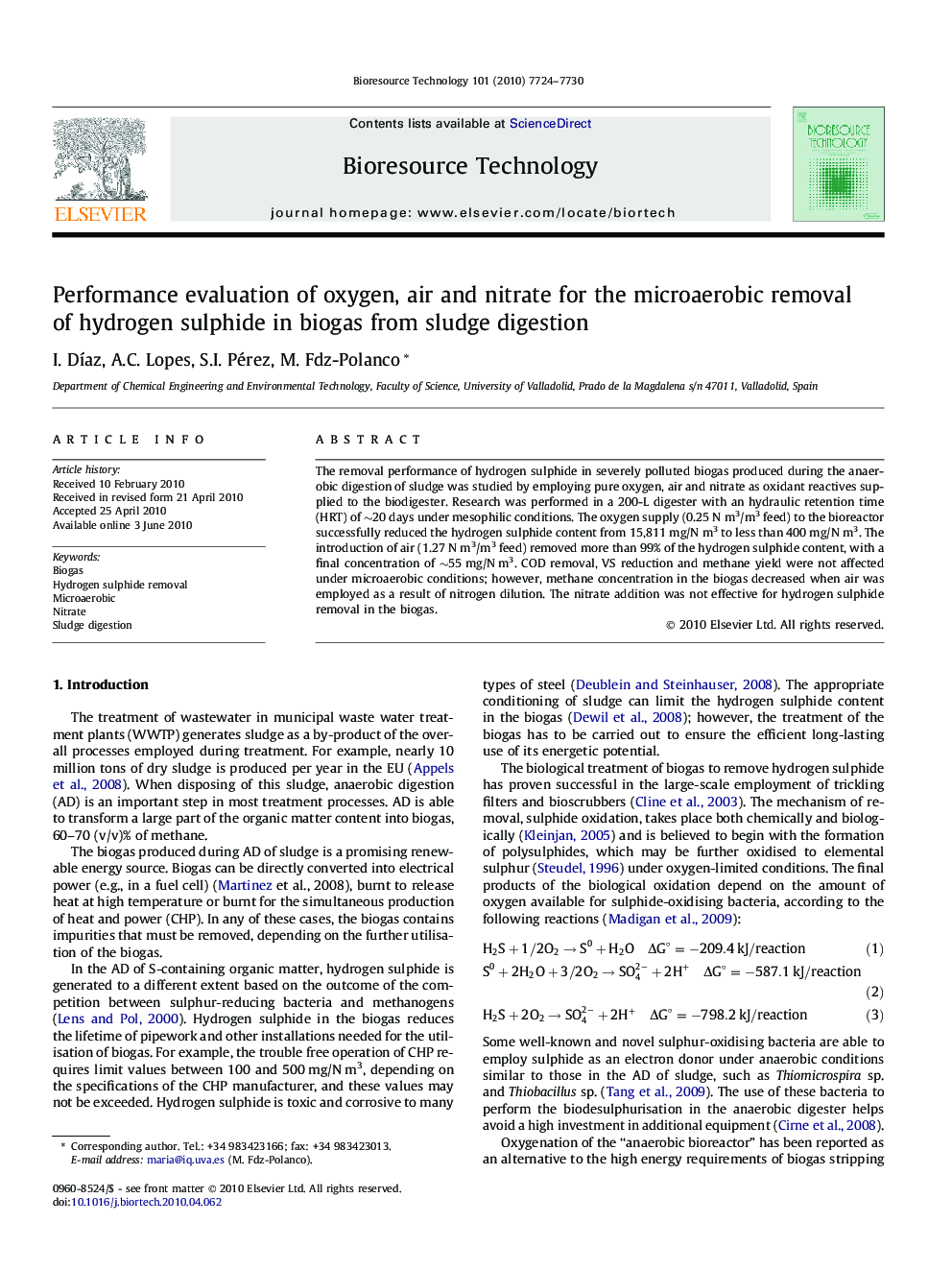| Article ID | Journal | Published Year | Pages | File Type |
|---|---|---|---|---|
| 682617 | Bioresource Technology | 2010 | 7 Pages |
The removal performance of hydrogen sulphide in severely polluted biogas produced during the anaerobic digestion of sludge was studied by employing pure oxygen, air and nitrate as oxidant reactives supplied to the biodigester. Research was performed in a 200-L digester with an hydraulic retention time (HRT) of ∼20 days under mesophilic conditions. The oxygen supply (0.25 N m3/m3 feed) to the bioreactor successfully reduced the hydrogen sulphide content from 15,811 mg/N m3 to less than 400 mg/N m3. The introduction of air (1.27 N m3/m3 feed) removed more than 99% of the hydrogen sulphide content, with a final concentration of ∼55 mg/N m3. COD removal, VS reduction and methane yield were not affected under microaerobic conditions; however, methane concentration in the biogas decreased when air was employed as a result of nitrogen dilution. The nitrate addition was not effective for hydrogen sulphide removal in the biogas.
